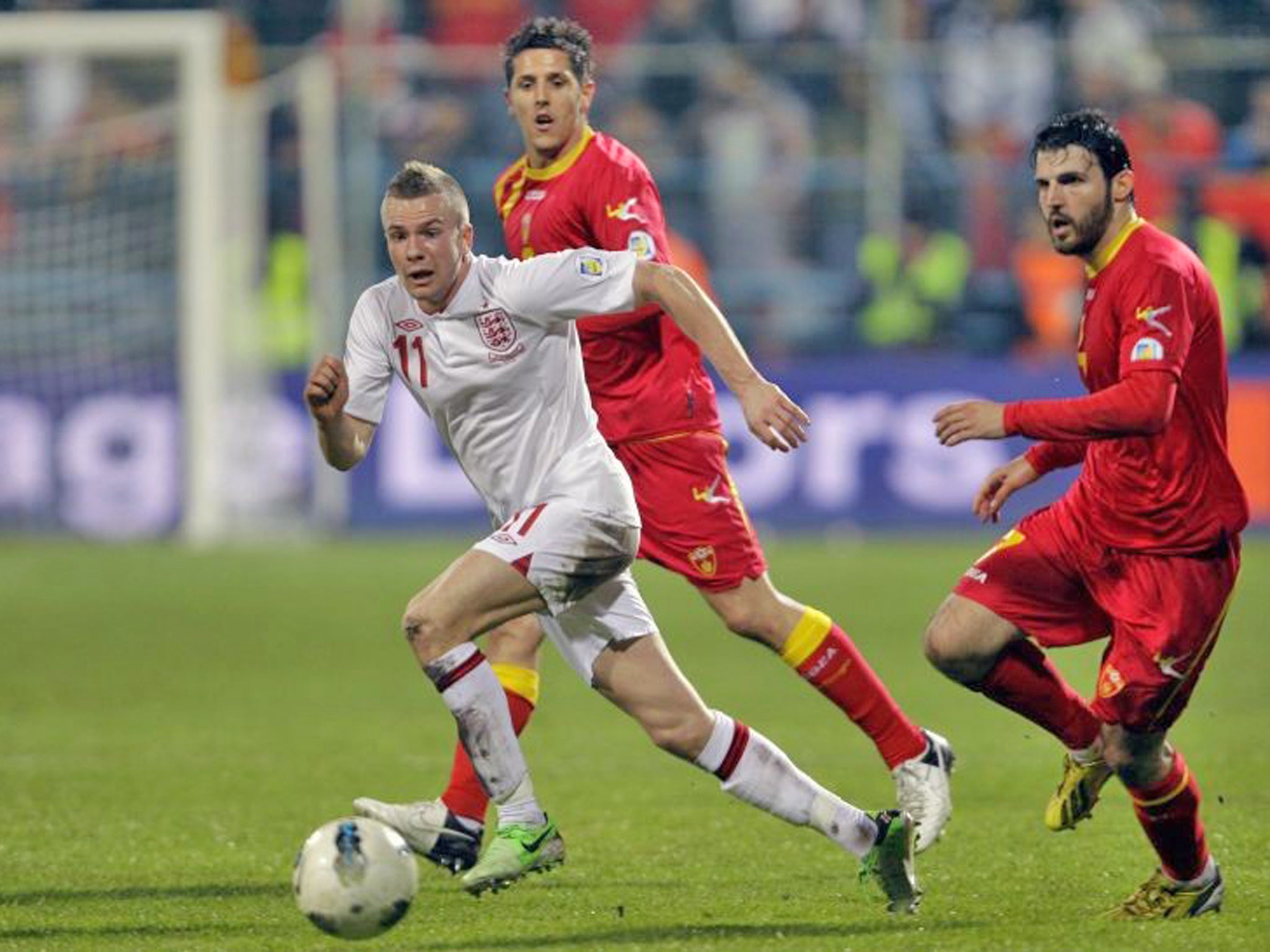Montenegro 1 England 1: Would Rio Ferdinand have made a difference?
Tom Cleverley the water-carrier must tackle different loads

Your support helps us to tell the story
From reproductive rights to climate change to Big Tech, The Independent is on the ground when the story is developing. Whether it's investigating the financials of Elon Musk's pro-Trump PAC or producing our latest documentary, 'The A Word', which shines a light on the American women fighting for reproductive rights, we know how important it is to parse out the facts from the messaging.
At such a critical moment in US history, we need reporters on the ground. Your donation allows us to keep sending journalists to speak to both sides of the story.
The Independent is trusted by Americans across the entire political spectrum. And unlike many other quality news outlets, we choose not to lock Americans out of our reporting and analysis with paywalls. We believe quality journalism should be available to everyone, paid for by those who can afford it.
Your support makes all the difference.Would Rio Ferdinand have made a difference? As Joleon Lescott ambled around allowing Montenegro to steal possession, and Chris Smalling sat transfixed on his backside as the ball ricocheted around the box before their equaliser, it was hard not to think he might have.
But England did not surrender victory because a 34-year-old centre-half who last played international football in June 2011 was unable to interrupt his “intricate pre-planned [fitness] programme”. Ferdinand’s last match was a 2-2 home draw against Switzerland so it is not as if his presence would have guaranteed a clean sheet.
There were times when Lescott looked lackadaisical, but not often, while Smalling was generally composed. Both could have done better when in possession but they were not alone. As Steven Gerrard said, England drew this match because they lost control of the ball. Their passing was occasionally sloppy in the first period when Montenegro inexplicably stood off them; when they were pressed in the second it fell apart.
The pitch did not help, these players are so used to playing on billiard tables they find it harder to adapt than in the past, but the failure was down to more than the conditions. In the first period England moved as a unit, supporting each other, passing short and sweet, pulling their opponents around. In the second they became stretched, the passes became longer and possession was squandered.
Hodgson’s solution, done as the stable banged in the Balkan night and the Montenegrins celebrated their leveller, was to withdraw Tom Cleverley. That was so much not a reflection on the player as his team-mates. There is an inbred English suspicion of midfielders who are not charging up and down the pitch, crunching into tackles and fizzing in shots. The only exceptions allowed are “flair” players, those who have magic in their feet and either dribble past people or play defence-splitting 40-yard passes.
Cleverley fits into a different category. He is a water-carrier, as French World Cup-winning captain Didier Deschamps was once sneeringly referred to by Eric Cantona. He gets in good positions, receives the ball then passes to a team-mate. Simple, but effective. However, when the team become stretched those 10-yards passes, the little give-and-gos, are harder to play. That is when Cleverley needs to be prepared to carry the ball more, and maybe seek to switch the play with a raking pass. Paul Scholes, the man he wishes to emulate, has a far greater passing range.
Cleverley has time on his side, and so does the England manager. The 23-year-old is the only player to start all England’s nine internationals this season – remarkably his first nine caps. He is in many respects the consummate Roy Hodgson player. Disciplined, quietly efficient, reliable. Looking back over those matches the only memory that leaps to mind is a bad miss against Brazil – finishing is a weakness given the positions he gets in – but Hodgson keeps writing his name on the team-sheet.
When a team are on top he facilitates play. Always on the move, drifting into space between the lines, Cleverley demands the ball, then moves it on. But in a side which is struggling to gain possession he is less influential. Then the need is for a tackler or a ball-carrier, which is why Hodgson eventually swapped him for Ashley Young, one of the latter.
With better officiating it could have been very different. It was Cleverley who broke forward then slipped the pass to Danny Welbeck which led to the latter being clipped by Stefan Savic. It prompted, however, a booking for Welbeck rather than the penalty from which England may well have sewn up victory.
Join our commenting forum
Join thought-provoking conversations, follow other Independent readers and see their replies
Comments